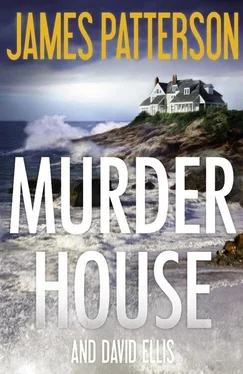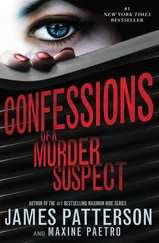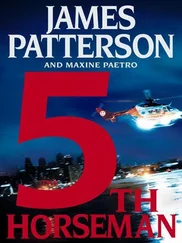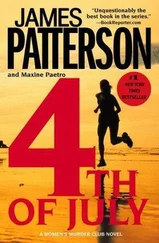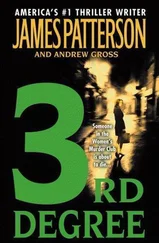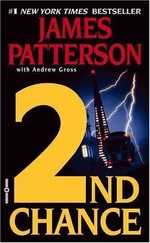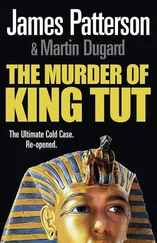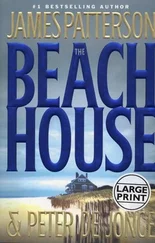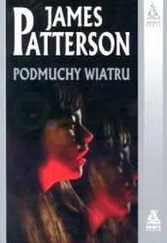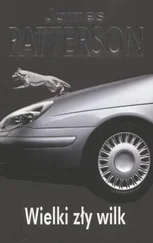We arrive at the beach. Chloe lets out a satisfied sigh. Behind her, the beachfront homes stand in marked contrast to the cedar-shingled houses along Ocean Drive. They are gigantic, modern, concrete structures with oversize windows and sharp angles.
“Can I say something to you, sweetheart?”
I take her hand. “Anything.”
The breeze plays with the bangs on Chloe’s forehead. “Have you thought about going back to Manhattan now?”
I squat down, scoop up a handful of sand, weigh it in my hand. There is an inch-long scar on the palm of my hand that I got — according to my mother — trying to chop a tomato when I was a little girl.
Little things like that, small memories that sting the most.
“Lang called me a couple of weeks ago,” she continues. “He said you were having nightmares every night. That you were drinking a lot, too, probably as a coping mechanism.”
I look up at her. “He said that?”
“He did. He was concerned. He was glad to have you close, of course. But he wasn’t sure this was the right thing for you anymore, working here.”
I pick up a shell and send it flying into the ocean. I squint into the wind, the wet mist.
Chloe squats down next to me. “All your life, you’ve taken care of everyone else,” she says. “When your father and Ryan died, your mother... Lydia was devastated. I know you were, too, but it always seemed like you were the one doing the consoling. And you were so young. You were, what, twelve?”
“Yes.” It was less than a month before my thirteenth birthday.
“I remember just a couple of days after they died, you were supposed to be in bed, and Lydia was crying and Lang was holding her. We were all on the couch. And you walked in. You’d been sleeping. Your hair was all matted and your eyes were sleepy and you were in your pajamas. You opened your arms as wide as they could go and you said, ‘Don’t worry, Mommy, I have enough love for all of them.’ Do you remember that?”
I wipe away a tear. I remember. I remember my mother looking like there was nothing left in the world for her.
“Well.” Chloe rubs my arm. “Maybe it’s time you took better care of yourself. Go home, Jenna. Your best friends are there. Matty’s there. What’s left here?”
I stand straight as the wind off the ocean kicks up. I look back at the oceanfront housing, at the endless stretch of beach. This isn’t my home. It never will be. But it holds one thing for me that no other place in the world does.
“This is the only place I can be a cop,” I say.
The room looks more like a maximum-security prison than a court of law. The number of sheriff’s deputies has doubled, virtually lining the walls of the courtroom, beefy security guards with jumpy eyes, armed with handguns and cuffs and Tasers. The tension in the room has raised the temperature to something between stuffy and downright unbearable.
As we wait for the judge, I scroll through photos on my iPhone. Nearly all of the recent ones include Lang: in his ridiculous polka-dot swimsuit at the beach; flipping burgers on his Smokey Joe in his backyard, chomping on a cigar; asleep on his lawn chair, his wife-beater T-shirt creeping up to reveal his added poundage (a photo I often used when arguing about his diet). Silly shots, all of them, but so dear to me now, those little things, those frivolous moments that mean so much in hindsight.
And then, amid these pictures, the one from the lawn on 7 Ocean Drive, that crest with that hook-beaked bird, that insipid creature that has taken up permanent residence in my daily nightmares. What’s with that stupid bird?
We all rise; then a collective hush falls over the room as the Honorable Robert Barnett, a handsome and deadly serious judge, assumes the bench. “We are back on the record in People versus Noah Lee Walker, ” he says dryly. “For the record, the court has stood in recess for the last week. Six days ago, the next witness scheduled to testify, Southampton Town Police Department chief Langdon James, was attacked in his home and later died of his injuries. The court granted a recess at the prosecution’s request.”
I shift in the courtroom pew, a front-row seat granted me by the prosecution. Noah Walker denied any involvement in Lang’s murder, but Judge Barnett revoked his bond anyway, out of an abundance of caution, so he’s locked up again in Riverhead when he’s not here in court.
“For the record, Mr. Akers is present today for the State, and Mr. Brody is present for the defense.” The judge removes his glasses. “And of course, Mr. Walker, the defendant, is present as well.”
My eyes move to Noah, sitting at the defense table with his hands folded and his eyes cast downward. His feet are crossed, raising the cuffs of his jeans slightly and revealing bare ankles. He didn’t even bother to wear socks to the trial. He looks like a hippie islander.
I let you live, you little shit. You could at least show a little respect.
I replay that moment in his attic bedroom, feel the surge of adrenaline returning. How close I came to doing it. How close I came to putting that bullet between his eyes, instead of firing it over his head.
As if he senses me, Noah turns his head ninety degrees and catches my eyes. He still has the shiner I gave him that night, though it’s now a dull-yellow bruise. The split lip has healed and the swelling dissipated. His jaw probably still hurts, but nothing was broken.
As far as I know, Noah hasn’t publicly complained about how I treated him that night, sneaking into his house, punching and kicking him, not to mention firing a bullet within inches of his scalp. That should be coming any time now, a police brutality lawsuit, probably a request for ten million dollars for his pain and suffering.
But for now, it’s just his eyes locked on mine. Something flutters through my chest as I stare back at him, that nagging feeling that I can’t read him, that I don’t know him. He is neither antagonistic nor smug in his stare. He is neither enjoying himself nor resentful. He just stares at me as if somehow, in some way, we are discovering each other, we are connecting with each other, something is happening between us.
I snap my head away, breaking eye contact, sweat popping at my hairline. I take a deep breath and brush the hair off my face.
He is the worst kind of creep. He’s the kind who can suck you in, the sociopath who can smile at you tenderly while he’s devising monstrous ways to torture you. Well, not me, pal. Not anymore. You may have fooled me initially, but no longer.
I turn back, looking in his direction again. He hasn’t moved. His eyes are still on me, his long dark hair hanging over his unshaven face. My heartbeat kicks into a higher gear. I uncross my legs and play with my hands. I shake my head slowly, discreetly, unsure of the meaning of what I’m doing, answering no to a question that has not been asked. His eyes narrow to a squint. His jaw rises slightly and his lips part, as if he’s going to speak, but surely he won’t, not in the middle of a court session while the judge is talking.
He will never speak to me again. And I will never speak to him.
I get to my feet and walk down the courtroom aisle toward the exit, which is guarded by two sheriff’s deputies. I’m done with Noah Walker. The next time I see him, it will be at his sentencing, after the judge informs him he’ll spend the rest of his life behind bars. Yeah, let’s make eye contact then, pal. Let’s see the look on your face then.
“Mr. Brody,” says the judge, “you have a motion?”
“Yes, Judge, I do.”
Defense lawyers always have motions. They always have bullshit arguments, smoke and mirrors, misdirection. But the next words coming from the mouth of Noah Walker’s lawyer freeze me in my tracks, only a few paces from the courtroom door.
Читать дальше
